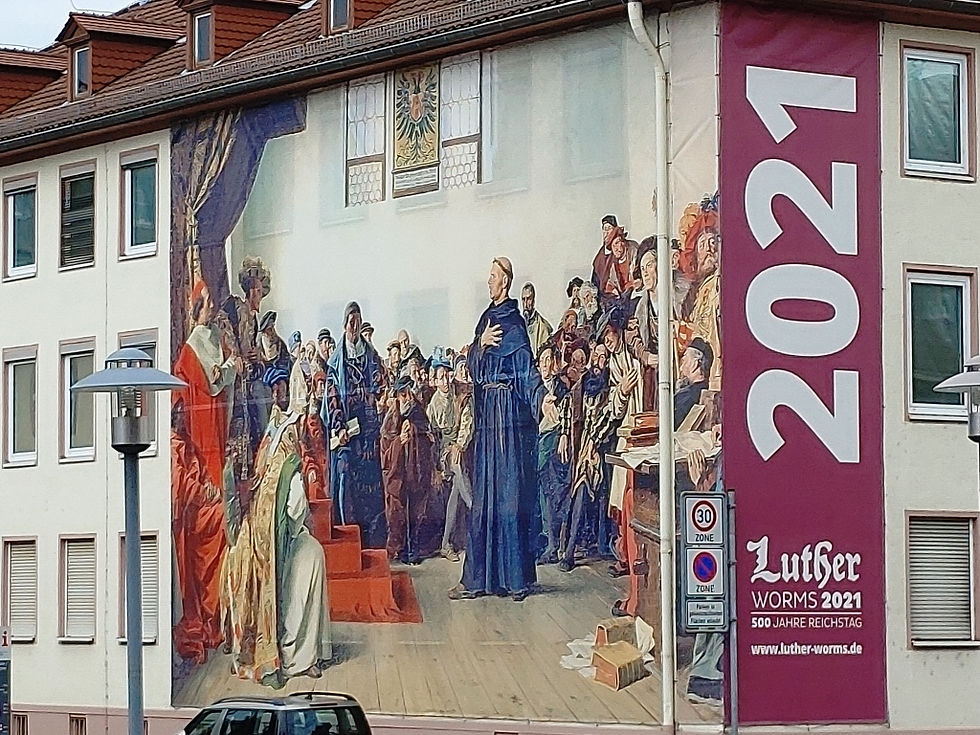Wartburg - what a Castle!
- pswartz
- Jun 4, 2022
- 2 min read
Updated: Jul 12, 2022


What a great day to visit Wartburg Castle. It’s the perfect temperature, the sun is shining and our group is all healthy and ready to hike up to the castle. The Wartburg is a castle originally built in the Middle Ages. It is situated on a precipice of 1,350 feet to the southwest of and overlooking the town of Eisenach, Germany In 1999,
UNESCO added Wartburg Castle to the World Heritage List and it certainly deserves it. It was the home of St. Elisabeth of Hungary and the place where Martin Luther translated the New Testament of the Bible into German. Although the castle today still contains substantial original structures from the 12th through 15th centuries, much of the interior dates back only to the 19th century.

From May 1521 to March 1522, Martin Luther stayed at the castle under the name of Junker Jörg (the Knight George), after he had been taken there for his safety at the request of Frederick the Wise following his excommunication by Pope Leo X and his refusal to recant at the Diet of Worms. It was during this period that Luther translated the New Testament from ancient Greek into German. This was an important step both for the German Reformation and the development of a consistent German standard language. Luther's was not the first German translation of the Bible, but it quickly became the most well known and most widely circulated.

The castle sits high on the hill and overlooks the village of Eisenach. It’s here in Eisenach, between 1498 and 1501, the young Martin Luther attended the St. George's Latin school in Eisenach in preparation for his following studies at the University of Erfurt. Luther referred to Eisenach as ein Pfaffennest ("a clerical backwater"), since during his time there were 300 monks and nuns per 1,000 inhabitants.

After visiting the castle, we took our motor coach back down the mountain to visit the town of Eisenach. Or should I say most of us took the motor coach, while a couple of us decided to walk down the mountain on a little used path and back into town?

Today we toured the Castle and then headed into Eisenach for lunch and exploring. It’s widely known that Martin Luther spent time here, but few people realize another famous person hails from Eisenach – Johann Sebastian Bach. There is a museum here dedicated to Bach. The Bachhaus was the first museum worldwide to be dedicated to the life and work of Johann Sebastian Bach in 1906. The house is over 600 years old and stands near the site of the house, which is directly in back of the museum, where Bach was born on 31 March 1685.






















































Comments